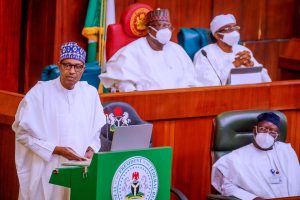2022 has been an intense year for Nigeria – with eight months of ASUU strike, humongous debt servicing, flooding, insecurity, etc. Hopes of rejuvenation were lifted with the announcements of the 2023 appropriation bill. Many questions were asked about the budget, “What will the budget prioritise?” “Will it be education due to the ASUU strike or security due to insurgency?” “Will more attention be paid to climate change and ecological issues like flooding?” “Do we have enough money to fund the budget?”
On October 7th, 2022, President Muhammad Buhari presented the budget for 2023 to the National Assembly, tagged “Budget of Fiscal Consolidation and Transition.”
The budget is President Buhari’s last presentation, as his administration leaves office in May 2023. The budget presentation was greeted with frenzy, as this is the largest budget in the country’s history – a total expenditure of N20.5 trillion.
The President has described the budget as one that “reflects the serious challenges” faced by the country.

Here are the key takeaways from the 2023 proposed budget:
- The budgeted amounts for the ministries of defense, power, education, and health total N1.24 trillion, N239.5 billion, N1.07 trillion, and N1.069 trillion, respectively. The ministry of finance, budget, and national planning receive N10.1 trillion.
- The per-person budget for Nigeria in 2023 is N92,209. Further analysis of these figures reveals that each person in the nation is allocated a token of N7,684 for every month of the year. This is far less than the N30,000 minimum salary in the country.
- The federal government decreased the overall capital expenditure from N5.96 trillion reported in 2022 to N5.35 trillion, despite the country having a significant infrastructure gap, poor roads, and insufficient rail networks, among other issues.
- The proposed cost of debt servicing isN6.31 trillion.